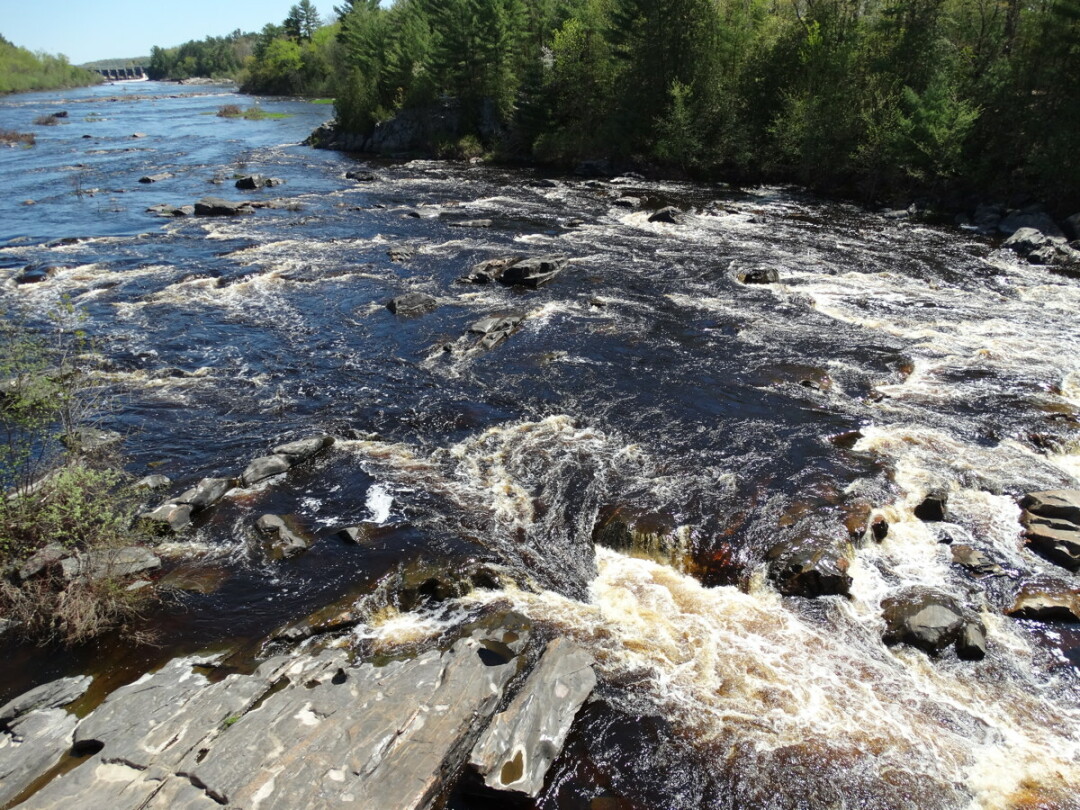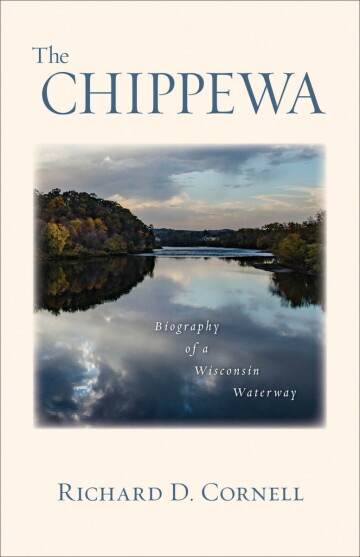All Along the River
a journey down the Chippewa in time, space, and memory

For more than 40 years, the current of the Chippewa River has pulled at Richard Cornell’s mind – and at his heart.
He first felt the tug on a February day in 1976, when he gazed out at the wide, flowing water from the vantage point of the UW-Eau Claire campus walking bridge. It was a spot he returned to often during the 20-plus years he lived in Eau Claire.
“The river became a part of my life. All I thought about was that river and the people who live along it. It drew me along.” – Richard Cornell, author
“I would stand at that bridge and look up and wonder where that river came from,” said Cornell, who now lives in St. Paul. He resolved to locate its point of origin, and with the help of a highway map and a magnifying glass, made his way to the tiny northern Wisconsin community of Glidden, a two-and-a-half-hour drive from Eau Claire. There he was directed to a rural bridge that crossed a modest stream that locals said was the river’s origin.
The end of this short journey of discovery was only a beginning, of course, and Cornell resolved to paddle the length of the river and write about the experience. This journey by canoe – which occurred in short segments over a 13-year period – is recounted in Cornell’s book, The Chippewa: Biography of a Wisconsin Waterway, newly published by the Wisconsin Historical Society Press.
The book journeys through time – geological, historical, and personal – and space, winding its way along the length of the Chippewa from its point (or rather, points – there’s an East Fork and a West Fork) of origin in the northwoods to the spot it finally flows into the Mississippi at the base of Lake Pepin.
Although Cornell achieved his goal of paddling the river’s length in 2003, something was missing. “I didn’t feel finished – or the river wasn’t finished with me,” he explained. A few years later, he began to return to communities along the river with a video camera, recording interviews and making short films. The project eventually took on the form of a book.
Cornell’s volume isn’t only a personal memoir and travelogue – it’s also a history of the river and the communities and people who have shaped (and been shaped) by it. Far from being a dry historical and geographical tome, the book is alive with the stories of French explorers and Ojibwe chiefs, of lumber barons and resort owners, of champion wrestlers and famed authors, and of the community leaders who continue to leave their marks on the waters’ edge. The more stories he learned, the more he felt compelled to tell them.
“The river became a part of my life,” he said. “All I thought about was that river and the people who live along it. It drew me along.”
Over time, the river revealed some secrets, as when Cornell returned to pinpoint the river’s true origin. “I’d always imagined the perfect source of a river. It would be a shimmering pool surrounded by tall pine trees with flowers growing around it,” he explained. It was just such a scene that awaited him when he located the headwaters of the Chippewa’s East Fork in the wilds of Iron County. “It was just breathtaking,” he recalled. “It was a dream come true.”
While Cornell made friends and fell in love with communities up and down the river during his years of travel, research, and writing, he still has a special soft spot for Eau Claire – and not just because he has a daughter and three grandchildren in the area.
“Eau Claire is amazing,” he said. “I can’t think of a place where the river is more of a part of the community than it is in Eau Claire. You can walk along the river for a longer distance and see more interesting stuff than in any other town along the river.” However, many communities on the Chippewa still largely ignore the river. For example, Cornell said he’s repeatedly told people in Glidden they should put up a sign declaring themselves “The Headwaters of the Chippewa.” Instead, their claim to fame is a record-breaking black bear shot in 1963.
 For some of us who live along its banks and who crisscross it daily, the Chippewa River can fade into the background. With his book, Cornell brings it back into focus. Just as a river grow stronger with each tributary that joins it, the streams of Cornell’s narrative flow together to create something broader and deeper as they move forward.
For some of us who live along its banks and who crisscross it daily, the Chippewa River can fade into the background. With his book, Cornell brings it back into focus. Just as a river grow stronger with each tributary that joins it, the streams of Cornell’s narrative flow together to create something broader and deeper as they move forward.
The Chippewa: Biography of a Wisconsin Waterway Book Release event with author Richard Cornell • Wednesday, June 14 • 7pm • The Volume One Gallery, 205 N. Dewey St., Eau Claire • FREE • (715) 552-0457 • VolumeOne.org






















